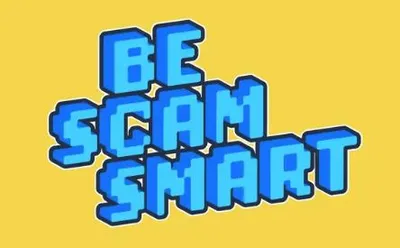
E-Safety
During the Autumn term, the children have been learning extensively about e-safety. This is about how we keep ourselves and our loved ones safe online. You can head to our Computing in Action curriculum page, where you can see some of the great work generated by children across the school! We believe that the internet is a wonderful tool that plays a huge role in the way in which your child is taught. Living in a digital age, we have a responsibility to protect young people using the internet and web-based applications (such as social media sites).
You can use this page to understand more about how to keep yourself safe on the internet, including some useful links and how to report inappropriate online behaviour.
Please read the following letter from Mr Lewin about the use of smart devices in school, including smartphones. Please note, we do not allow children to bring such devices into school.
Above all, children should remember the Childline number - 0800 11 11 - and website (click to visit) when learning how to safeguard themselves.
Keeping Smartphone and Social Media Safe
Smartphones are one of the most-used electronic gadgets out there, and children are becoming increasingly adept at using these devices. This really helpful page will help you and your child to keep yourselves safe when using smartphones.
A really good way to help keep your child safe on the internet is to learn which websites they like to visit, and which applications (especially social media platforms linked to smartphones) they frequently use. By looking at this apps yourself, and referring to the useful links (below) which go through the potential dangers of these websites, you are more likely to be able to ensure your child stays e-safe at all times.
ThinkUKnow
Thinkuknow is the education programme from NCA-CEOP, a UK organisation which protects children both online and offline.
Explore one of the six Thinkuknow websites for advice about staying safe when you're on a phone, tablet or computer by visiting this link (click here).
Basic Best Practices
The Internet Keep Safe Coalition–a nonprofit organization dedicated to keeping children safe online–recommends that children understand the 3 Cs of the internet:
- Contact – Do your children really know that person they’re friending on social media?
- Content – Is the content your child is watching appropriate for their age or maturity level?
- Conduct - Is your child bullying or being bullied by others while online?
Are you worried about online sexual abuse or the way someone has been communicating with you online?
Make a report to one of CEOP's Child Protection Advisors by clicking the image below. Click here to go to the CEOP YouTube page, which features lots of helpful video resources.
Online Safety at Ibstock Junior School
As part of our Computing curriculum, children are taught extensively throughout the year about the responsible and safe use of the internet. This only ever takes place in lessons supervised by members of staff. We have extensive security measures in place in school, which are monitored both internally and externally, to help safeguard pupils from potential dangers or unsuitable material. At the start of the school year, teachers discuss with their pupils about how we can all stay safe online. Parents are also asked to sign the school's Acceptable Use Policy on behalf of their children to ensure that we are able to create a culture of safe and responsible online learning. This policy is accessible on the Policy page of our website, by clicking here.

 Click on the picture for information Click on the picture for information |
 Click on the picture for information Click on the picture for information |
 Click on the picture for information Click on the picture for information |
 Click on the picture for information Click on the picture for information |
 Click on the picture for information Click on the picture for information |
Internet Matters have worked with Ambitious about Autism and Roblox to create new resources to help families with neurodivergent children learn and stay safe from scams within games. |
Information for Parent's about Self Harm https://youtu.be/hfYIFsivDws
Useful Links for Parents and Pupils
http://www.parentinfo.org/ - a website that has advice on online issues, especially about the safe use of social media sites such as Instagram and Facebook.
https://www.childnet.com/ - another website that specialises in e-safety and being responsible with information that you choose to share online.
https://www.internetmatters.org/ - this specifically helps parents and children in instances of cyber bullying. It also has detailed guides about the dangers of social media sites.
https://www.net-aware.org.uk/ - designed for parents, this is a jargon-free guide to help you understand the ins and outs of social media websites, especially image-sharing platforms like Snapchat and Instagram.
Online Gaming - Privacy Settings
Click these links for handy how-to guides for keeping your child safe whilst using the Sony PlayStation Network (for PS4) and the Microsoft X-Box Live service (for X-Box).


 Click on the picture for information
Click on the picture for information








